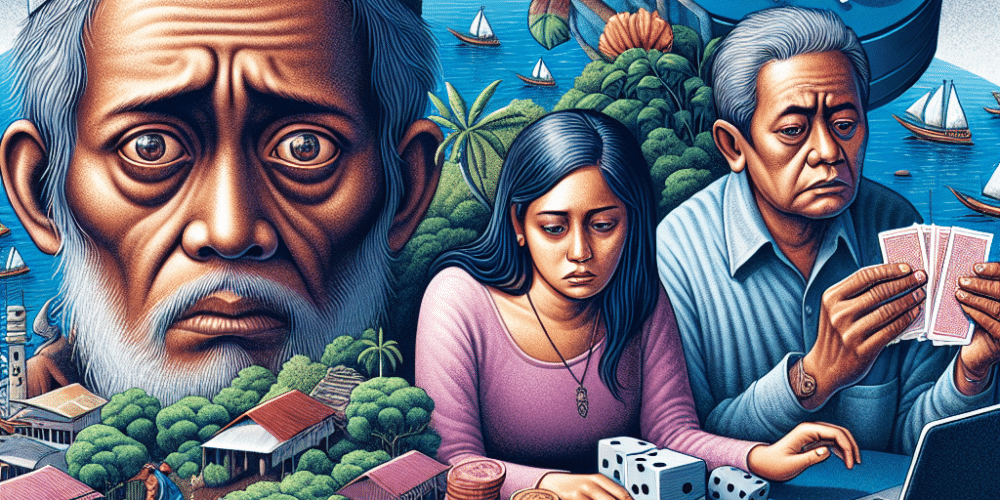The United Nations Office on Drugs and Crime (UNODC) has sounded the alarm regarding an increase in gambling scams in Timor-Leste, a territory bordered by Indonesia and the Savu Sea. This remote region has become a focal point for illicit operations affecting Southeast Asia and beyond.
Recent intelligence and law enforcement operations have revealed that transnational organized crime groups have infiltrated Timor-Leste’s Special Administrative Region of Oecusse-Ambeno (RAEOA) under the guise of foreign direct investment (FDI). A significant breakthrough came after a coordinated raid in the area, uncovering evidence such as SIM cards and satellite internet devices linked to scam centers operating from local hotels.
These investigations have drawn connections between criminal enterprises in Timor-Leste and organizations known for cybercrime and offshore gambling. Notably, these operations appear to have ties to previously convicted cybercriminals and offshore gambling operators. Interestingly, the government of Timor-Leste recently issued its first offshore gaming license to GRU, raising questions about the regulation and oversight of gambling activities in the region.
The potential involvement of the notorious 14K Triad, one of the world’s largest criminal organizations with around 20,000 members, adds another layer of complexity. This triad is known for its diverse criminal activities, including illegal gambling, money laundering, and other serious offenses. Their presence suggests a coordinated effort to exploit Timor-Leste’s emerging economic landscape.
Part of the appeal for these criminal groups is Oecusse’s designation as a digital free trade zone, a status granted in December 2024. Such zones, intended to stimulate economic growth by attracting foreign investment, are often misused by organized crime syndicates to establish operations via shell companies. These entities leverage the relaxed regulations to orchestrate illegal gambling, romance scams, and investment fraud, generating vast illicit profits.
Alarmingly, these criminal networks also engage in human trafficking, luring individuals with promises of employment only to exploit them in illegal activities. As law enforcement across Southeast Asia tightens its grip on traditional crime hubs, these groups are shifting their focus to regions like Timor-Leste, where regulatory measures are less stringent.
With Timor-Leste on the cusp of joining the Association of Southeast Asian Nations (ASEAN), enhancing its economic and digital infrastructure is crucial. Strengthening these systems against organized crime infiltration is vital for safeguarding national security and promoting regional stability. The developments in RAEOA highlight the strategic maneuvering of criminal networks to capitalize on jurisdictions with limited detection capabilities and regulatory oversight.
There is, however, another side to this narrative. The authorities in Timor-Leste assert their commitment to fostering a legitimate investment environment. They argue that initiatives like the digital free trade zone are essential for economic development and attracting bona fide investors. They emphasize the importance of distinguishing between legitimate businesses and criminal entities, insisting that with the right controls and international cooperation, the region can flourish while mitigating the risks of crime.
Yet, as emphasized by the UNODC, the challenge lies in implementing effective regulatory frameworks and international collaboration. The agency advocates for a balanced approach where economic opportunities can be harnessed without compromising security. As one perspective puts it, the stakes are high, but with vigilance and global support, Timor-Leste can navigate these challenges effectively.
The unfolding situation in Timor-Leste serves as a reminder of the complex interplay between economic growth and security. As nations around the globe grapple with similar dynamics, the experiences of Timor-Leste could offer valuable lessons in safeguarding emerging markets from the clutches of organized crime. While the promise of economic prosperity is alluring, it must be pursued with an unwavering commitment to rule of law and international cooperation.

David Garato is a luminary in gaming journalism, renowned for peeling back the curtain on the gaming world with his witty and insightful commentary. A decade into weaving stories from the pixelated edges of indie games to the expansive universes of AAA titles, David’s work is a thrilling blend of analysis and adventure. When not writing, he’s live-streaming, sharing his gaming exploits with an engaged and growing audience. David doesn’t just write about games; he lives them, making him a trusted guide in the gaming community.
















